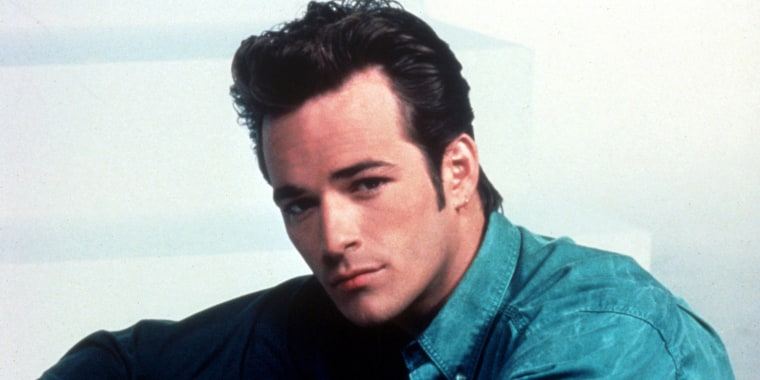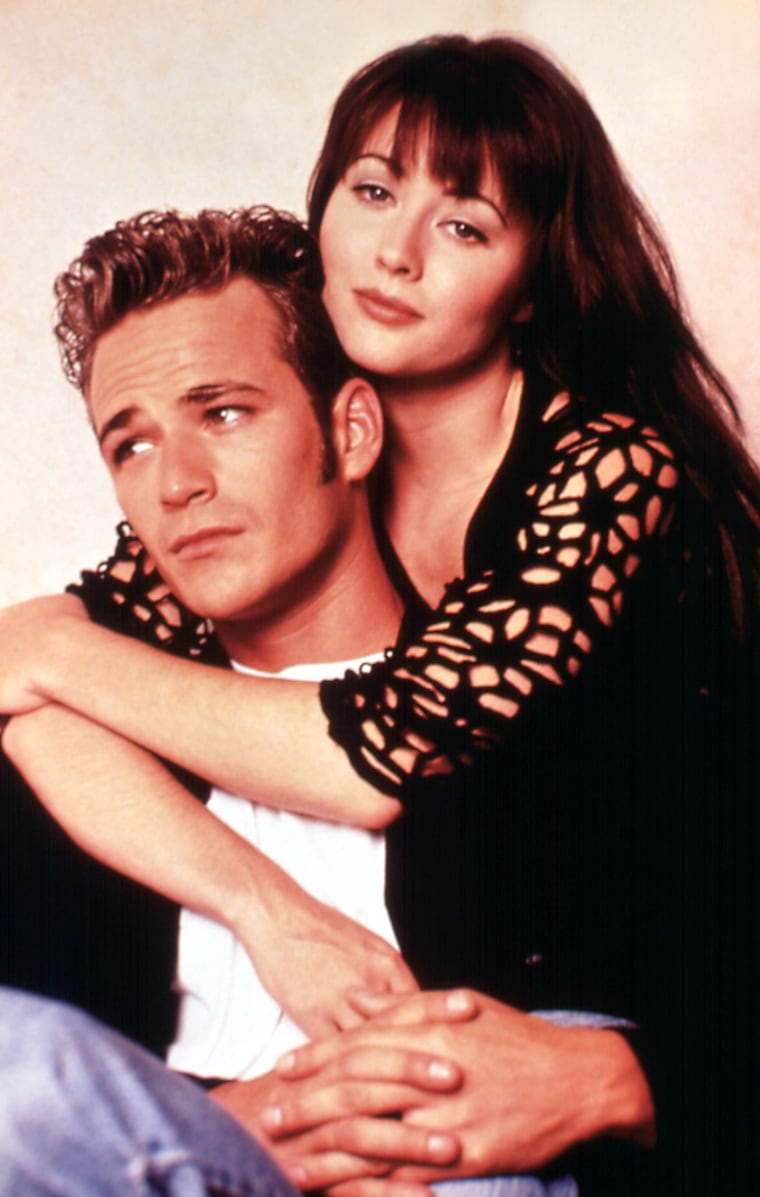Luke Perry’s death has dropped like an anvil from the sky for Generation X.
It is the first true sign that, we, who came of age in the ‘90s, are not invincible and — gulp — not so young anymore.

There is irony in that epiphany. The former “Beverly Hills, 90210” star was a mere 52 years old when he died. The father of two certainly had much more to accomplish, but what's sobering for the 40-somethings who grew up watching him as teen heartthrob Dylan McKay is, not only are we faced with the loss of someone we revered, he died from something that sounds so, well, grown up.
A stroke.
Gen X still clings to the notion that we're young and when you're young, you believe you'll live forever.
This was no car accident, drug overdose or freak accident, all of which are also tragic. By all accounts, Perry was a regular guy. His death stemmed from something medical that can happen to any of us, but surely would evade us, because these kinds of things don’t happen to us, do they? No, they happen to people our parents’ ages or our grandparents’ ages. We are immune to health scares because we are still young, forever teenagers.
Only we’re not.
We’re closer to 50 than 30, closer to 60 than 20.
We’re beginning to reach ages when we really need to start taking care of ourselves, while the memory of carefree insolent youth hovers over us like a mocking shadow. It’s there, but we can't hold onto it. Perry's death has resonated so strongly because, we now realize, it very easily could've happened to us.
To people of a certain age, his passing is a sobering reminder of the tenuousness of our own mortality. That's heady stuff and while almost everyone agrees that 52 is too young to die, it does not erase the fact that it’s hardly the age we identify with when we think of Luke Perry.
It's an age that seems far-flung in the distance. No one who so perfectly captured our youth — save for Kurt Cobain — has given us such reason to reflect and put into such acute focus the temporal nature of our own being.
Generation X still clings to the notion that we're young and when you're young, you believe you'll live forever. Perry’s death is a warning that we are adults who are not immune to the health issues that we never imagined could affect us.
Think about the difference in reaction between Perry’s death and the passing of Katherine Helmond, who played Mona on the 1980s sitcom “Who’s the Boss?” Another star from our youth back in the '80s, she died last week at the age of 89. It was met with the requisite mourning that comes with the death of a celebrity we like, but also with a silent understanding that, "Hey, she was 89. She lived a long life."

Perry’s death, though, served as a salvo, putting Generation X on notice. While we are all transported back to our teen years when we even hear his name, a new era in our own lives has swiftly and unceremoniously arrived. His death is a loss for everyone, but it cuts even deeper because he was an anti-hero for our generation before we entered the real world. We claimed him. He was ours.
And now he's gone.
Millennials see him as Fred Andrews on “Riverdale.” To Gen Xers, though, he will always be Dylan McKay from “Beverly Hills, 90210,” the very definition of youthful rebelliousness who we watched in another era in our dorm rooms or in our living rooms, live or taped off the VCR in a time when on-demand and bingeing did not exist.
That time has passed, though. A new period in our lives is here.